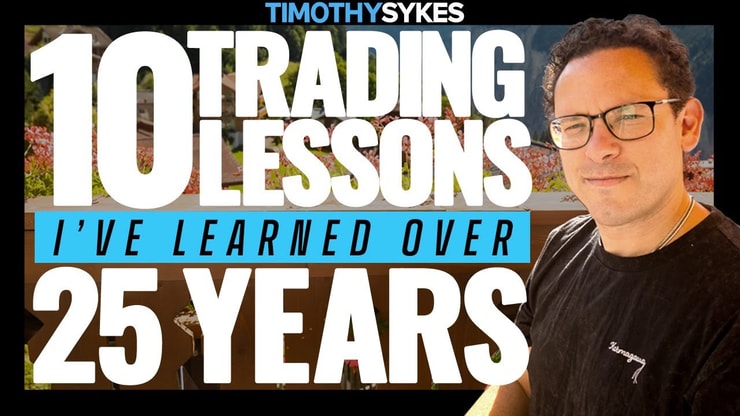Steve Cohen is a billionaire hedge fund manager and the owner of the New York Mets baseball team. Cohen is most famous for his aggressive trading style and the success of his hedge fund, Point72 Asset Management.
His journey to becoming a legendary figure in the world of finance is one that new traders can learn a lot from.
Read this article because it discusses Steve Cohen’s trading strategies, his rise to billionaire status, and answers key questions about his financial success.
I’ll answer the following questions:
- Who is Steve Cohen?
- Is Steve Cohen legit or a scam?
- What trading strategy is Steve Cohen famous for?
- How did Steve Cohen get started in trading?
- What are Steve Cohen’s early trading successes?
- Which stock picks are on Steve Cohen’s watchlist?
- What is Steve Cohen’s net worth?
Let’s get to the content!
Table of Contents
Who Is Steve Cohen?
Steve Cohen is a billionaire hedge fund manager, art collector and philanthropist. His story is full of lessons for traders, especially those who want to understand what it takes to dominate a market.
From his early days at Gruntal & Co. to building his own hedge fund empire, his career shows how patience, strategic risk management, and research can build wealth.
Is Steve Cohen Legit or a Scam?
Many beginner traders might wonder if Steve Cohen’s success is legitimate or if there’s more to the story. It’s true that his career hasn’t been without controversy.
In 2013, his former hedge fund, SAC Capital, pleaded guilty to insider trading charges and paid a $1.8 billion fine. Cohen personally was not charged with insider trading but did face a two-year ban from managing outside money. These events caused some to question his legitimacy in the financial world.
However, Cohen’s return to the market through Point72 shows that his skills as a trader were never in doubt. He rebuilt his reputation, proving that even in the face of legal issues, successful traders can adapt and come back stronger.
His work as an art collector and philanthropist also solidifies his standing as a legitimate and highly influential figure in both finance and the broader cultural scene.
What Trading Strategy Is Steve Cohen Famous For?
Cohen is an investor known for his long/short equity trading strategy, a fundamental approach that allows traders to profit from both rising and falling stock prices. This strategy revolves around taking long positions in stocks expected to rise and shorting those expected to fall, which can help traders profit even during market downturns.
Cohen’s version of this strategy is supported by deep fundamental research, made possible by the vast network of analysts and traders he employs.
One of the keys to Cohen’s success has been his ability to leverage the information provided by his team to make highly informed trades. Point72 Asset Management isn’t just Cohen sitting behind a desk trading stocks—it’s a massive operation that includes data analysis, fundamental research, and trading strategies built on real-time market insights.
Cohen’s story offers a valuable lesson on becoming successful in trading. To hear about the greatest lessons I’ve learned over my 25 years in trading, check out my video below.
Cohen’s Long/Short Equity Trading Strategy
Cohen’s notable trading strategy involves long/short equity trading, where he takes both long and short positions to profit from stock price movements. His approach is heavily based on deep fundamental research, supported by a vast network of analysts and traders.
Another well-known aspect of Steve Cohen’s trading approach is his keen interest in behavioral finance. He often looks for market inefficiencies caused by emotional reactions, such as panic selling or irrational exuberance, and uses these moments to his advantage.
Cohen’s ability to maintain emotional discipline allows him to stay ahead of the competition, leveraging short-term market mispricing for long-term gains.
For another perspective on trading strategies, read my article about Jesse Livermore’s approach.
How Did Steve Cohen Get Started?
Steve Cohen’s path to success began after he graduated from the Wharton School at the University of Pennsylvania. He started his career at Gruntal & Co., where he quickly made a name for himself by generating significant profits from his first day on the job. These early successes laid the foundation for what would become one of the most successful hedge fund careers in history.
What Are the Early Trading Successes of Steve Cohen?
Cohen’s early trading was characterized by his ability to make quick, decisive trades based on deep market research. His reputation among hedge fund managers grew quickly as he became known for his ability to spot opportunities others missed.
Cohen’s rapid rise at Gruntal eventually led to the creation of his own hedge fund, SAC Capital, which is where his trading style really flourished.
To master your own trading strategy, you need to have a robust platform that provides charting, technical indicators, screening capabilities, and more.
When it comes to trading platforms, StocksToTrade is first on my list. I helped to design it, which means it has all the trading indicators, news sources, and stock screening capabilities that traders like me look for in a platform.
Grab your 14-day StocksToTrade trial today — it’s only $7!
Which Stock Picks Are on Steve Cohen’s Watchlist?
Steve Cohen is known for keeping an eye on stocks in a wide range of sectors, from tech to healthcare. His fund, Point72, focuses on finding companies with strong fundamentals and the potential for significant growth.
In recent years, Cohen has shown a particular interest in biotech companies, likely due to their high volatility and the potential for large swings in stock prices—something that aligns well with his long/short strategy.
Cohen’s focus on innovation-driven sectors like biotech reflects this mindset. Traders can benefit from studying the sectors Cohen targets. For a while in 2023, biotechs that Cohen’s fund invested in practically became their own hot sector…
Steve Cohen’s stock picks often include companies undergoing significant transformation or disruption. For instance, he’s been known to invest in companies with turnaround potential or those involved in emerging technologies like artificial intelligence and cloud computing.
His emphasis on innovation is reflected in how Point72 scouts for companies that can capitalize on future trends, providing a forward-looking edge that positions him well in volatile markets.
For an alternative viewpoint on stock picking in tech and media, check out my article on David Portnoy’s strategy.
What Is Steve Cohen’s Net Worth?
Steve Cohen’s current net worth is estimated to be around $17 billion, making him one of the wealthiest individuals in finance. His wealth has been built primarily through his hedge fund activities, but his ownership of the New York Mets and his art collection, valued in the hundreds of millions, also contribute much to his fortune.
For traders, Cohen’s story is a reminder that consistent success in the market can lead to wealth beyond just trading profits. His ventures in sports and art show how financial success in one area can open doors to other opportunities.
Trading isn’t rocket science. It’s a skill you build and work on like any other. Trading has changed my life, and I think this way of life should be open to more people…
I’ve built my Trading Challenge to pass on the things I had to learn for myself. It’s the kind of community that I wish I had when I was starting out.
We don’t accept everyone. If you’re up for the challenge — I want to hear from you.
Apply to the Trading Challenge here.
Trading is a battlefield. The more knowledge you have, the better prepared you’ll be.
Is continuous education part of your trading toolkit? Write “I’ll keep it simple Tim!” in the comments if you picked up on my trading philosophy!
More Breaking News
- GTM Stock Experiences Notable Fluctuations Amid Recent Financial Developments
- GTM Stock Falls Amid Latest Earnings Report and Market Reactions
- Novo Nordisk’s Shares Surge as FDA Targets Illegal Drug Marketing
- Microbot Medical Eyes Expansion with Key Milestones in 2026
FAQs About Steve Cohen
How Old Is Steve Cohen?
Steve Cohen was born on June 11, 1956, which makes him 68 years old as of 2024. His long career in finance has seen many market cycles, providing him with the kind of experience that is invaluable to any trader.
Does Steve Cohen Have a Blog or Website?
While Steve Cohen doesn’t maintain a personal blog, his hedge fund, Point72 Asset Management, has a website where the firm shares insights on markets, investment strategies, and its approach to trading. For those interested in following Cohen’s thoughts on trading, the website is a valuable resource.
Does Steve Cohen Have a TikTok, YouTube, or IG Account?
Steve Cohen does not have a public presence on platforms like TikTok or Instagram — but he does have an X/Twitter account. In addition, as the owner of the New York Mets, you can often find updates related to him on the team’s social media accounts.
Does Steve Cohen Offer a Course?
Steve Cohen does not offer a public trading course. His firm, Point72, operates a training program for its employees, but this is not available to the general public. However, his approach to trading has been studied extensively by industry insiders, and there are countless resources that break down his strategies.





Leave a reply